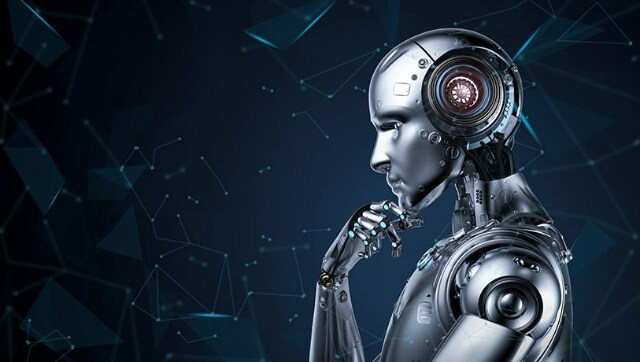Mind Upload: Scientists forecast successful digitisation of human consciousness by end of 2023
Using voice synthesis and video models, humans might be able to 'transfer their consciousness over to computers' by the end of this year, a computer scientist has claimed. What makes it more interesting is that a former Google engineer is also working on a similar project.

Using voice synthesis and video models, humans might be able to "transfer their consciousness over to computers" by the end of this year, a computer scientist has claimed. What makes it more interesting is that a former Google engineer is also working on a similar project.
A computer expert is pushing people across the world to videotape their elderly parents and loved ones because he believes human consciousness can soon be transferred onto a computer, possibly by the of this year.
Dr Pratik Desai, who created many Silicon Valley AI businesses, stated that if individuals have enough video and voice recorders of their loved ones, there is a “100 per cent chance” that the family would “live with you forever.”
Desai, who developed his own ChatGPT-like generative language model, stated on Twitter, “This should be possible by the end of the year.” Many academics predict that the tremendous breakthroughs in AI that ChatGPT is driving will usher in a new golden age for technology.
However, the world’s best brains are divided on AI – Elon Musk and over 1,000 other tech leaders are calling for a halt, warning that it may kill mankind. On the other hand, other experts, such as Bill Gates, believe AI will improve our lives – and it appears that additional specialists are on board with the concept that it will help us live forever.
Digitising the Human Mind
Desai believes we may reconstruct our deceased loved ones as computer avatars. The method would involve digitising the person’s films, voice recordings, papers, and images, which would then be put into an AI system that would learn all it could about the subject.
Users may then create an avatar that looks and acts just like their deceased family member.
One firm working on virtual humans has already benefited from the advancement of ChatGPT.
The Live Forever project builds a virtual reality robot with the same voice and mannerisms as the human it is entrusted with emulating. Artur Sychov, the creator of Live Forever, told Motherboard in 2022 that he expected the technology to be available in five years, but owing to recent advances in AI, he believes it may be available sooner.
A computer becoming a living person, with a conscience
The method would involve digitising the person’s films, voice recordings, papers, and images, which would then be put into an AI system that would learn all it could about the subject.
Users may then create an avatar that looks and acts just like their living family.
“We can take this data, apply AI to it, and rebuild you as an avatar on your land parcel or inside your NFT environment, and others will be able to come and communicate to you,” Sychov explained to Motherboard.
“You will meet the individual. And you might not realise that it’s AI for the first 10 minutes of speaking with that individual. That is the intention.”
DeepBrain AI, another AI startup, has designed a memorial hall that allows users to reconnect with their deceased loved ones in an immersive experience. Similarly, Rememory is a service that uses images, videos, and a seven-hour interview with the individual while they are still alive.
Deep learning technologies are used to record the individual’s face and speech, which is presented on a 400-inch screen by the AI-powered virtual person. In 2020, a Korean television show utilised virtual reality to reconcile a mother with her deceased seven-year-old daughter.
A Former Googler is also involved
Desai did not elaborate on his technological concept, but former Google Engineer Ray Kurzweil is also working on a digital afterlife for people, primarily to resurrect his father. Kurzweil, 75, stated that his father died when he was 22 years old and that he aspires to one day communicate with him through the use of a computer.
“I will be able to communicate with this re-creation,” he told the BBC in 2012. “Eventually, it’ll be so lifelike that it’ll be like talking to my father.” Kurzweil revealed that he has hundreds of boxes containing his father’s paperwork, records, videos, and photos, which he is digitising.
“A very good way to express all of this documentation would be to create an avatar that an AI would create that would be as much like my father as possible, given the information we have about him, including possibly his DNA,” Kurzweil said.
The scientist explains that his digital father would undergo a Turing Test, which is a test of a machine’s ability to exhibit intelligent behaviour equivalent to, or indistinguishable from, that of a human. If an entity, let alone a single individual, passes the Turing test, that person is conscious, Kurzweil explained.
Kurzweil forecasts that mankind will achieve immortality in about eight years, in addition to transferring memories from the dead.
He recently spoke with the Adagio YouTube channel about the advancements in genetics, nanotechnology, and robotics, which he says may lead to age-reversing ‘nanobots.’ These small machines will fix damaged cells and tissues that deteriorate as we age, making us resistant to diseases such as cancer.
Kurzweil was recruited by Google in 2012 to “work on new projects involving machine learning and language processing,” but he had been making technical forecasts for a long time.
He claims that computers are already making us smarter, and that linking them to our neocortex will allow people to think more clearly.
Read all the Latest News, Trending News, Cricket News, Bollywood News,
India News and Entertainment News here. Follow us on Facebook, Twitter and Instagram.
also read

China’s Baidu cancels public showcase for Ernie AI, its ChatGPT rival, shows it behind closed-doors
China's Baidu cancelled the public showcase of its Ernie AI bot, a chatbot that is supposed to rival OpenAI's ChatGPT. Instead, they chose to show the AI bot to select tech firms behind closed door, under pressure from the Chinese government.

AI bots like ChatGPT can now influence people in taking decisions related to life and death
Experts are calling for future bots to be banned from giving advice on ethical issues, after researchers found that AI bots can seriously influence people and the decisions they take even in life and death situations, in a haphazard manner.

AI can crack through most passwords in under a minute. Here’s how you can stay safe
People seriously need to step up when it comes to passwords. A basic AI tool can crack about 51 per cent of most basic passwords in under a minute. Meanwhile, the same AI tools will take over 6 quintillion years to crack properly set passwords.
